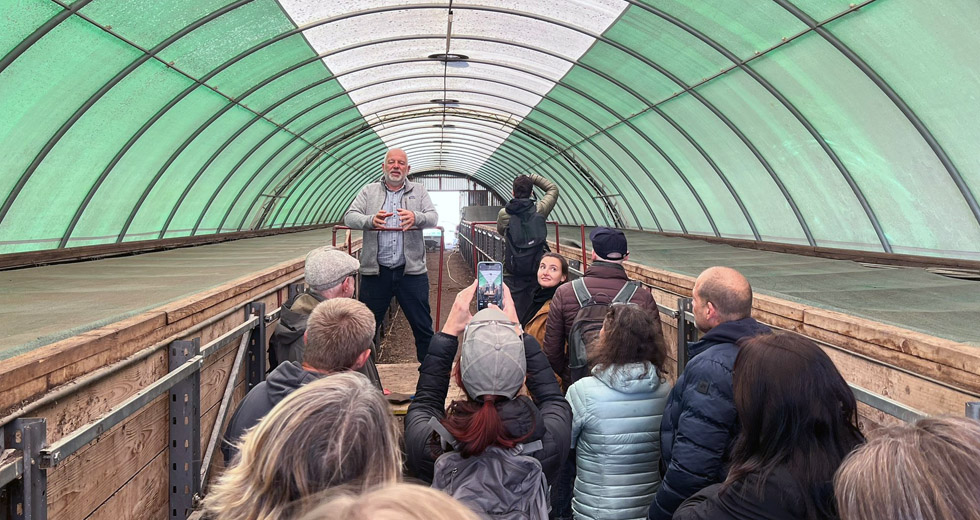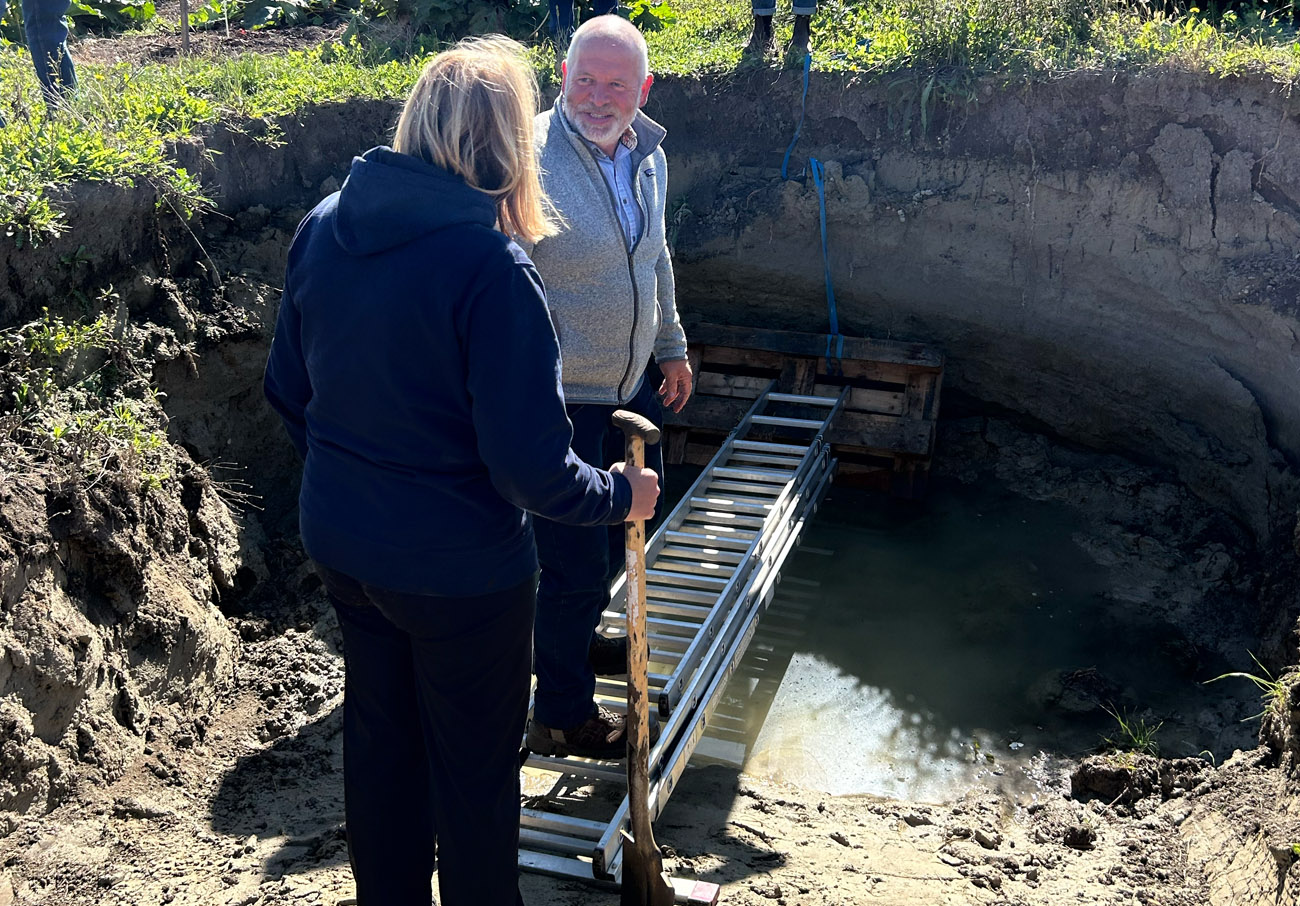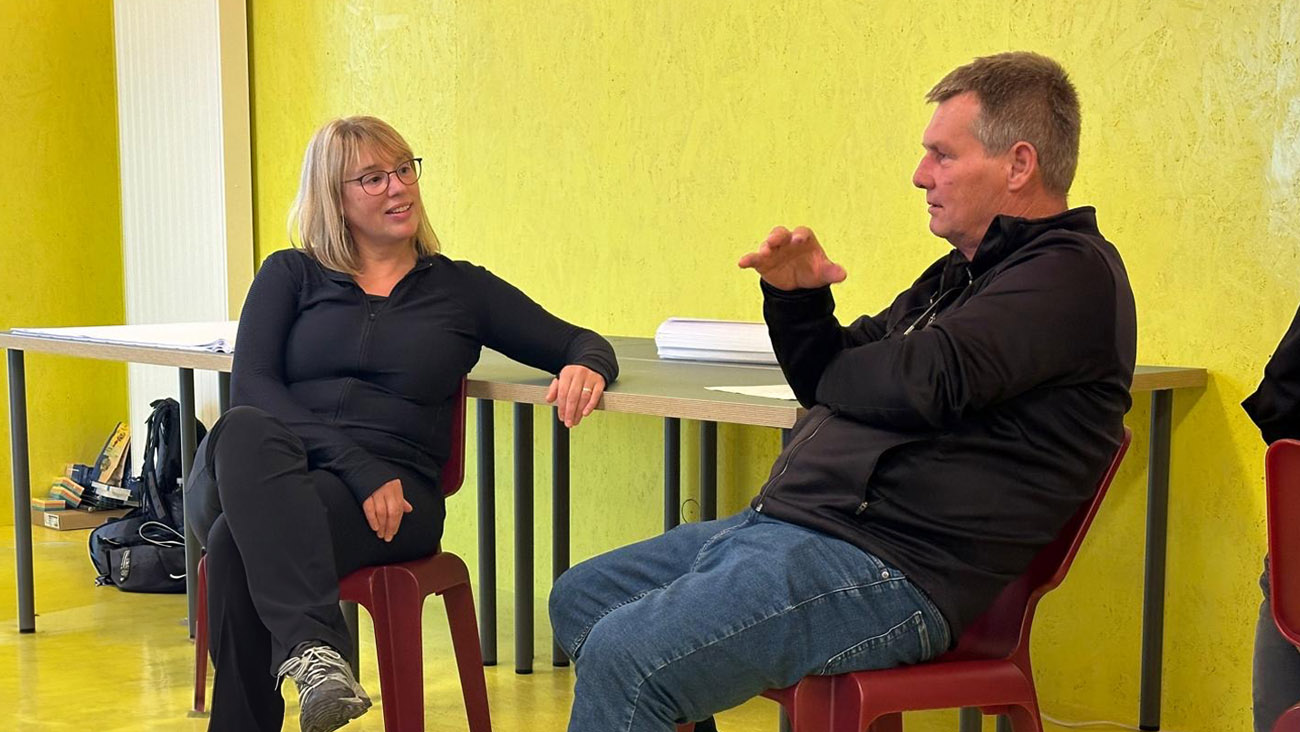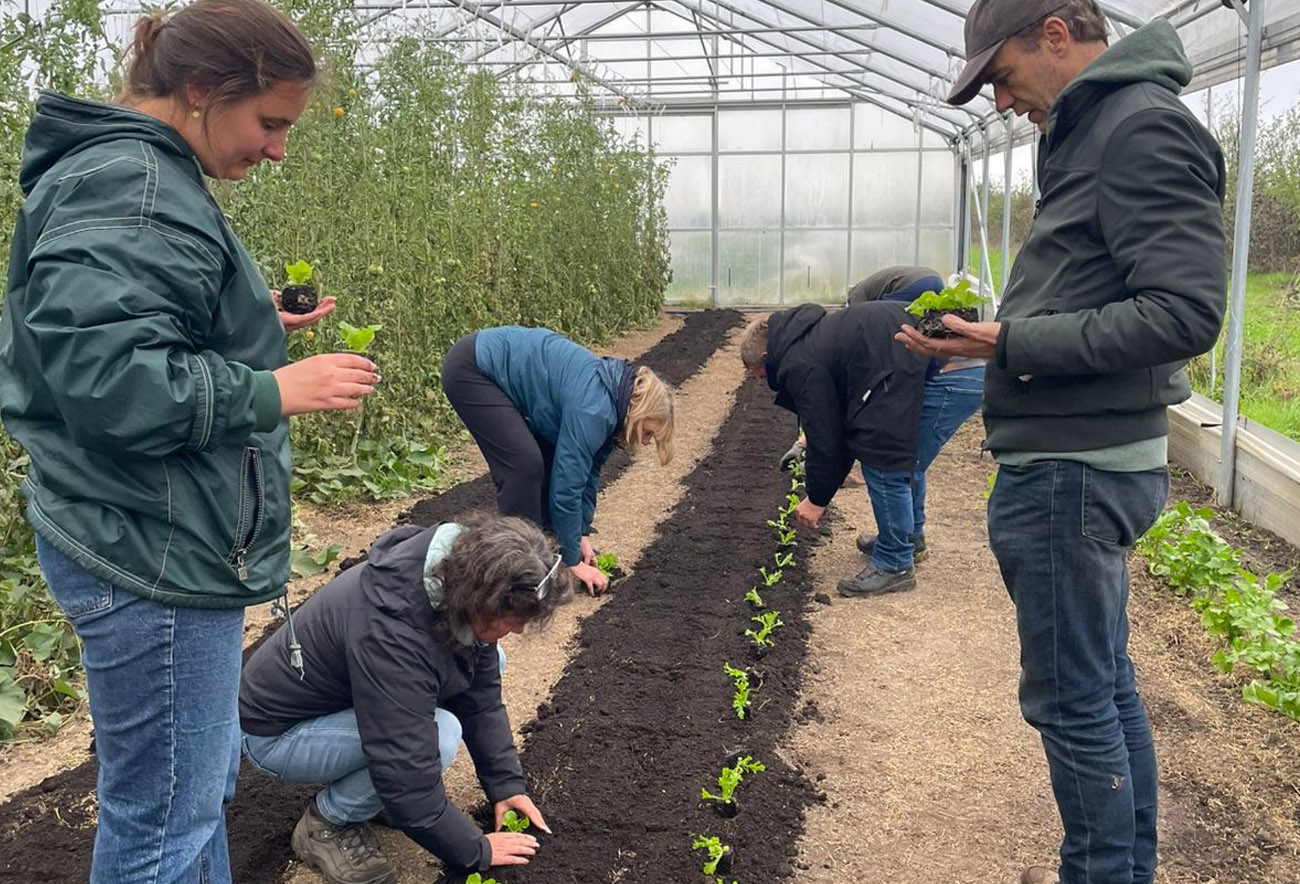How We Tackle Weeds in Organic Chickpeas
June 23, 2025We’re back in the field with our chickpea cultivation series! See how we tackle weeds after emergence using inter-row cultivation.
Read articleDuring our visit to the Lighthouse Farm Lab in Austria, we gained valuable insights into soil health improvements and sustainable farming practices.

Last week, we participated in the Lighthouse Farm Academy (LHFA), held at Grand Farm in Absdorf, Austria. As the first member of the Global Network of Lighthouse Farms (GNLF), Grand Farm & Garten was the focus of this iteration of a LHFA Lab Academy – a workshop designed to bring science to practice – which centered on one critical area: soil health.
Grand Farm & Garten, spanning 120 hectares, is known for its focus on sustainable practices and cutting-edge on-farm research. At the heart of their work is soil health, and we were excited to see how their methods are transforming the way we approach farming through a five-day workshop.
From shallow soil tillage to producing and using vermicompost, the farm’s innovative techniques highlight the importance of maintaining healthy soils to support ecosystem services.
Their shallow tillage technique—going no deeper than 8 cm—was a standout feature, designed to protect the soil’s structure while promoting vital microbial life. This minimal soil disturbance, coupled with innovative practices like flame weeding and undersowing, helps maintain the ecosystem’s balance without relying on heavy machinery or synthetic inputs.

A key takeaway was their collaboration with Wageningen University & Research (WUR) on a comprehensive soil health benchmarks framework. Unlike traditional soil assessments, which focus solely on nutrient levels, this framework incorporates biological processes—recognizing the crucial role soil biology plays in ecosystem services such as carbon and water regulation, nutrient cycling, biodiversity, and productivity.
One of the most impactful parts of the workshop was Prof. Rachel Creamer’s lecture on soil health indicators. Dr. Creamer, who is the chairholder of the Soil Biology group at WUR, provided a clear understanding of how rigorous scientific approaches can lead to better evaluation of soil health in specific contexts.

She emphasized that context is key in defining a minimal set of soil health indicators, and it is defined by factors such as soil type (clay, sandy, peat, etc.), environment (weather conditions), and management. Currently, farming practices will be included based on a questionnaire, but we see LoginEKO’s software as a tool that could help optimize this process of data collection.
Our visit reaffirmed that soil health is not just a part of sustainable farming—it’s the foundation. With soil biology now recognized as key to long-term agricultural resilience, we’re eager to incorporate new strategies into our work at LoginEKO.

We’re back in the field with our chickpea cultivation series! See how we tackle weeds after emergence using inter-row cultivation.
Read articleTwo days, three farms, one shared goal: growing hemp more sustainably. Here’s what we learned and shared during our tour of Prekmurje.
Read articleChickpeas offer great potential for organic farming. Join us as we walk you through the essential steps of chickpea cultivation, starting with seedbed preparation.
Read article